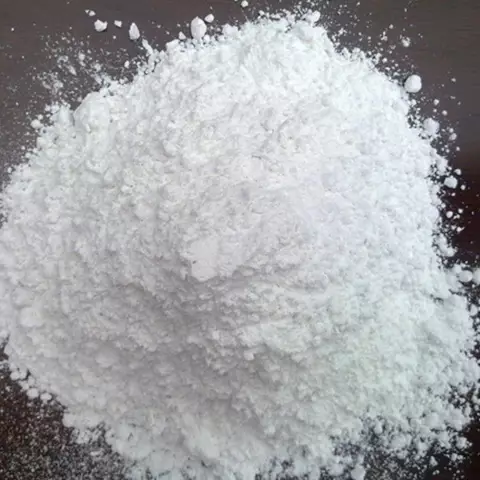- Author Rachel Wainwright wainwright@abchealthonline.com.
- Public 2023-12-15 07:39.
- Last modified 2025-11-02 20:14.
Rapeseed oil

Rapeseed oil - the oil obtained from rapeseed can be considered one of the most widespread at the global level, its production accounts for about 14% of the total production of vegetable oils.
Rape is an annual cruciferous plant that has been cultivated for over 6 thousand years. It is a cold-resistant plant, it grows well in temperate climates, but, according to most researchers, the Mediterranean is the birthplace of rapeseed. Rape plants are demanding on moisture.
The root of rape is pivotal, it grows into the depth of the soil up to 2 meters, the stem is straight, covered with a bluish bloom, the leaves are basal rosette and stem differ from each other. Relatively large rapeseed flowers in a brush-shaped inflorescence are yellow or white in color. They contain a lot of nectar, therefore they are appreciated as honey plants.
Rapeseed pods are up to 10 cm long and 3 cm wide, outside they are smooth. One pod contains up to 15-30 globular seeds of black-brown color, up to 2.5 mm in diameter. The seeds ripen unevenly along the height of the plant, so they must be stored for some time before processing and ripen.
In agriculture, rapeseed is grown both as winter and spring crops. In addition, this plant improves the structure and fertility of the soil on which it grows, enriches it with nitrogen. After sowing grain crops in this place, their yield increases.
Use of rapeseed oil
Rapeseed oil in its natural form is used for food; mayonnaise and margarine are made from it. According to its properties, rapeseed oil is close to olive oil, it is transparent, does not deteriorate in the air for a long time, does not go rancid. The optimal ratio of physiologically important acids puts rapeseed oil in the first place in terms of benefits compared to other vegetable oils.
It is possible to use rapeseed oil not only as a food product, but also as a raw material for a number of technical products. From it, an ester of fatty acids is obtained, which are able to reduce the cetane number of fuel and are used as biodiesel fuel.
The rubber industry, steel production, lubricants, film production - this is not a complete list of the uses of rapeseed oil for non-food purposes.
Waste from the production of rapeseed oil (cake) is good animal feed. But the green parts of rapeseed plants, due to their high content of vegetable protein, are highly valued in agriculture; they are given to animals fresh or in silage.
The benefits of rapeseed oil
Rapeseed oil tastes good. The use of rapeseed oil lies in the presence of essential amino acids in its composition, which are not synthesized in the human body - linoleic and linolenic.
Rapeseed oil contains a lot of vitamins E and A - natural antioxidants that protect cells from damage by oxygen radicals. Besides them, rapeseed oil contains a lot of B vitamins.
The significant benefits of rapeseed oil are evidenced by the high content of microelements in it: calcium, copper, manganese, magnesium, zinc. They are found in rapeseed more than in soybean oil, and their digestibility from rapeseed oil is higher.
Rapeseed oil has a positive effect on metabolism, it reduces the content of "harmful" cholesterol, prevents the formation of blood clots in blood vessels, prevents the development of breast cancer in women.
The use of rapeseed oil in cosmetology as part of masks or baths improves the health and appearance of the skin.
Harm of rapeseed oil

The harm of rapeseed oil is the presence of up to 50% erucic acid in traditional rapeseed varieties. The peculiarity of this acid is that it is not able to be broken down by the body's enzymes, therefore it accumulates in the tissues and helps to slow down growth, delays the onset of puberty. Also, erucic acid leads to disturbances in the work of the cardiovascular system, causes cirrhosis of the liver and infiltration of skeletal muscles. The safe threshold for the content of this acid in oil is 0.3 - 0.6%.
In addition, the harm of rapeseed oil is caused by sulfur-containing organic compounds that have toxic properties - glycosinolates, thioglycosides and their derivatives. They negatively affect the thyroid gland and other organs and give the oil a bitter taste.
Breeders have developed rapeseed varieties in which the content of erucic acid and thioglycosides is minimal or completely reduced to zero. Bezeruk varieties (Shpat, Agat, Promin) significantly reduced the harm of rapeseed oil.
The Canola rapeseed variety does not contain thioglycosides. The oil obtained from it is called canola oil, it is completely safe for humans, and it is used for frying, dressing salads, etc.
It is not recommended to use rapeseed oil in case of individual intolerance, diarrhea, gallstone disease, chronic hepatitis, as it negatively affects the functioning of the liver and the entire digestive tract.
Found a mistake in the text? Select it and press Ctrl + Enter.






